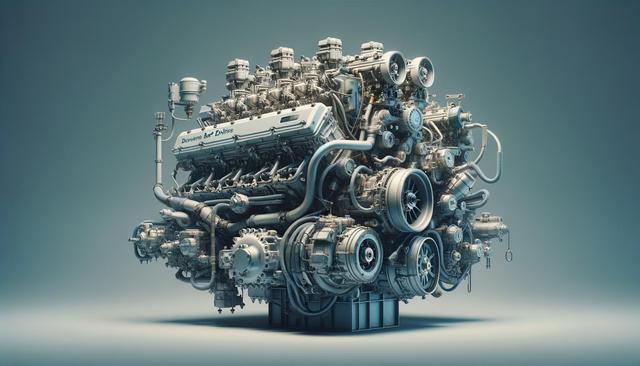Understanding the Appeal of Used Boat Engines
Purchasing a used boat engine is a practical choice for many boating enthusiasts who are looking to equip their vessel without investing in a brand-new power unit. Whether you’re restoring a classic boat, upgrading an older engine, or simply trying to reduce costs, the used market offers a diverse range of options. These engines are often significantly more affordable than new ones, and when sourced carefully, they can offer years of reliable service.
The appeal largely comes down to value. Marine engines are built to be durable, and many owners upgrade for reasons unrelated to performance or reliability. This means you can often find engines that have been well-maintained and still have a lot of life left in them. However, buyers must be cautious and informed, as the used market can also include engines with hidden problems or excessive wear.
Before purchasing, it’s helpful to consider the type of use the engine has seen. Freshwater engines, for example, typically suffer less corrosion than those used in saltwater environments. Keeping an eye out for signs of rust or corrosion on the engine block and components can give you early clues about the engine’s previous life and whether it’s worth pursuing.
Key Factors to Evaluate When Buying Used
When shopping for a used boat engine, there are several key factors to inspect and questions to ask. These steps can help you make a more informed decision and avoid costly mistakes down the line.
- Engine hours: Similar to mileage on a car, engine hours provide insight into total usage. Lower hours are generally better, but maintenance history is just as important.
- Service records: Ask for maintenance logs or receipts. Regular oil changes, filter replacements, and tune-ups suggest the engine was well cared for.
- Compression test: A compression test can indicate the health of the engine’s internal components. Inconsistent or low compression across cylinders may signal issues.
- Visual inspection: Look for leaks, cracks, loose wiring, or worn hoses. A clean engine isn’t always perfect, but neglect is often visible.
It’s also a good idea to hear the engine running, either in person or via a video from the seller. Listen for odd noises, such as knocking or grinding, and watch for smoke from the exhaust, which could indicate mechanical problems.
The Importance of Compatibility and Fit
One of the most overlooked aspects of buying a used boat engine is ensuring that it will be compatible with your boat. Engines vary not only in size and power but also in mounting configuration, shaft length, and control systems. Failing to match these details can result in costly modifications or performance issues.
Start by checking the boat manufacturer’s specifications for engine type, size, and horsepower limits. Exceeding these guidelines can affect the boat’s handling and safety, and in some cases, may void insurance or warranty coverage.
- Shaft length: Choose a shaft length that matches your transom height to ensure proper water intake and performance.
- Mounting type: Verify whether your boat requires an outboard, inboard, or sterndrive engine.
- Weight: Consider the engine’s weight in relation to your boat’s balance and buoyancy limits.
In addition, electronic compatibility is essential. Newer engines often include digital controls and gauges that might not integrate with older systems. If your boat has analog controls, you may need to factor in the cost of upgrading wiring or instrumentation.
Where to Buy Used Boat Engines Safely
Finding a trustworthy source is critical when purchasing a used boat engine. There are several avenues to explore, each with its own advantages and considerations. Buying from a reputable marine dealer often includes some form of warranty and the benefit of professional inspection. These engines may be more expensive but offer peace of mind.
Online marketplaces and classified ads can also yield good deals, but they require more due diligence. When buying from a private seller, always ask detailed questions about the engine’s history and request documentation where possible. Meeting in person to inspect the engine or bringing a marine mechanic along can reduce risk.
- Marine salvage yards: These can be a source for rare or discontinued engines and parts, but condition varies widely.
- Boat shows and auctions: Sometimes offer used engines at competitive prices, often after demonstrations.
- Boating forums or communities: Peer recommendations can point you toward reliable sellers and real-world feedback.
Be cautious of deals that seem too good to be true. Engines priced far below market value may have hidden problems or lack proper documentation. A little skepticism can go a long way in avoiding bad investments.
Tips for Extending the Life of Your Used Engine
Once you’ve purchased a used boat engine, proper care and maintenance are essential to maximizing its lifespan and ensuring reliable performance. Even a well-used engine can continue to perform effectively with routine attention and responsible use.
First and foremost, establish a consistent maintenance schedule. This includes regular oil and filter changes, checking coolant and fuel systems, and inspecting belts and hoses for wear. Follow the manufacturer’s guidelines closely, even if the engine is out of warranty.
- Flush the engine: If operating in saltwater, flush the engine with fresh water after each use to prevent corrosion.
- Store properly: During the off-season, store the engine in a dry, climate-controlled space and use fuel stabilizer to protect the system.
- Use high-quality fluids: Stick to recommended oils and lubricants to minimize wear and deposits.
- Monitor performance: Pay attention to signs like strange noises, overheating, or loss of power—these could indicate early issues needing attention.
Investing in a marine engine diagnostic tool can also be helpful. These tools provide real-time data on engine performance and can assist in early detection of problems. Additionally, building a relationship with a trusted marine mechanic can go a long way in keeping your engine running smoothly for years to come.







